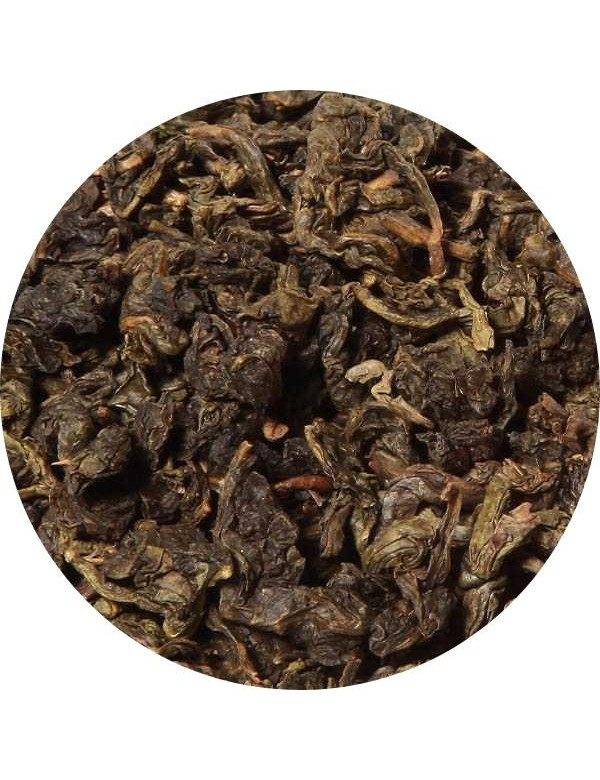



Top quality Oolong with a mild nuttily taste and a clear orange cup
As a semi-oxidized tea, oolong tea contains a range of antioxidants, including many found in both green and black teas. Antioxidants are nutrients that protect our cells from damage caused by aging, our lifestyle, and the environment. Over time, this damage contributes to many chronic diseases
All teas contain high levels of antioxidants that offer a range of health benefits. However, research shows that the nutrients in oolong tea have stronger antioxidant and anti-mutagenic effects than green or black varieties
How to prepare:
quantity: 12 g/l (approx. 3g per cup)
temperature: 80 C
brewing time: 1 to 3 minutes
Multiple infusion: can hold 2 to 3 steeps
Food pairing: light snacks, sweets, curries and meat dishes

Security policy

Delivery policy
Country of origin: China
Oolong tea’s powerful antioxidants and other nutrients may offer health benefits like:
Lower Risk of Diabetes
Research shows that the polyphenols in oolong tea lower blood sugar levels. They also reduce insulin resistance, a condition where the body doesn’t properly use sugars in the blood. High blood sugar and insulin resistance are both risk factors for diabetes and other health conditions like obesity.
Heart Health
Oolong tea’s polyphenols activate an enzyme that breaks down triglycerides, a type of fat in your blood. These triglycerides contribute to the thickening of artery walls, increasing the risk of stroke, heart attack, and other heart diseases. Research also shows oolong tea can also lower your cholesterol, which at high levels is another heart disease risk.
Weight Management
Research suggests that oolong tea may decrease body fat and boost metabolism, reducing the risk of obesity and aiding weight loss. Studies show oolong tea stimulates fat burning and increases the number of calories your body burns by up to 3.4%.
Cognitive Support
Oolong tea is high in an amino acid called L-theanine, which studies show has cognitive effects like improved brain activity, better sleep quality, and reduced stress and anxiety. In addition, oolong tea’s antioxidants have brain-protective properties that may help prevent neurodegenerative diseases, in which parts of the nervous system stop working. Scientists continue to study the tea’s potential in preventing diseases related to cognitive decline, like Alzheimer’s and dementia.
Nutrition
Many of oolong tea’s health benefits are attributed to its antioxidants like polyphenols, but it also contains other health-boosting vitamins and minerals. Research shows that oolong tea’s fluoride content is comparable to what dentists recommend to prevent cavities. It may also reduce the risk of tooth loss and oral cancer.
Oolong tea is also an excellent source of:
Manganese
Potassium
Magnesium
Niacin
Sodium
Because oolong tea contains caffeine, drinking it in high amounts can have adverse side effects like headaches, irritability, increased heart rate, and insomnia. Experts recommend not exceeding 400 milligrams of caffeine a day, and one cup of oolong tea contains about 38 milligrams per serving making it safer option to coffee